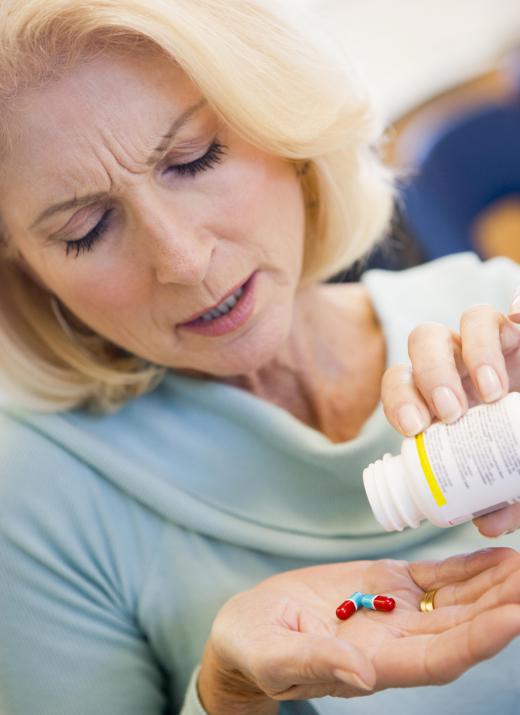What is a Nuclear Pharmacy?
 Mary McMahon
Mary McMahon
Nuclear pharmacy is a pharmaceutical specialty which focuses on the handling and preparation of radioactive materials used in therapeutic treatment. These materials are used to treat a wide range of medical issues, with many people being most familiar with them in the context of cancer treatment and medical imaging, and special training is required to work with them. Since 1978, nuclear pharmacy has been recognized as its own specialty within the larger field of pharmacy, with special training requirements for people who wish to be certified in this area.
Nuclear pharmacists train as pharmacists, and receive additional education about radioactive materials. This education includes discussions on how they work, precautions for safe handling, legal issues which pertain to radioactive isotopes used in medicine, and so forth. Training in nuclear pharmacy is designed to familiarize pharmacists with these materials so that they can work safely and comfortably on pharmacy tasks.

Large institutions such as teaching hospitals and big hospitals may have their own nuclear pharmacy, which is usually isolated to limit the risk of exposure to dangerous materials. When radioactive isotopes are needed, they are ordered from the nuclear pharmacy and prepared by the personnel there. In other cases, institutions order from a large and centralized nuclear pharmacy which supplies multiple institutions which cannot support their own nuclear pharmacies. In this case, the radioactive isotopes are couriered to the end destination by pharmacy personnel.

Specialized equipment is used in a nuclear pharmacy to provide shielding to the staff. From the moment materials enter the pharmacy to the time they are dispensed, they are tightly controlled and a number of safety protocols are followed so that people know where materials are at all times and so that the materials are properly shielded. Pharmacists must be comfortable with compounding and preparing drugs for administration, and with working in a shielded environment.

Working in this pharmacy specialty can actually carry less stress than working in a general pharmacy, despite the presence of radioactive materials. Nuclear pharmacists do not work with members of the public directly as a general rule, and their work tends to be slower paced. The precise protocols they follow ensure safety and comfort, and greatly reduce the risk of dispensing the wrong drug, compounding a drug improperly, or experiencing other problems. For people who enjoy methodical work and who have an interest in nuclear medicine, nuclear pharmacy jobs can be very rewarding.
AS FEATURED ON:
AS FEATURED ON:















Discuss this Article
Post your comments